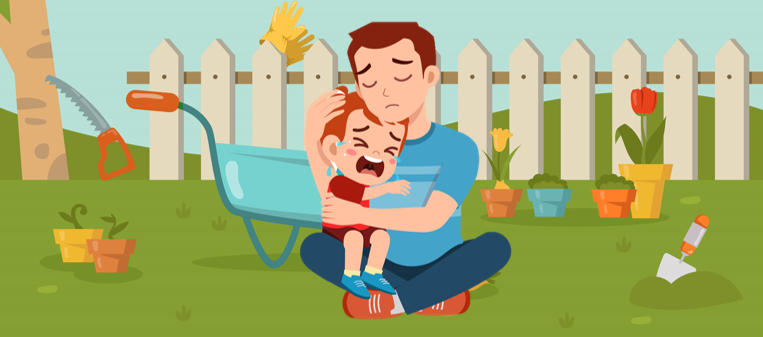Managing anxiety in children naturally involves adopting holistic approaches that focus on their wellbeing. It’s important to note that severe or persistent anxiety may require professional guidance and these suggestions should complement, not replace, medical advice. But here are some natural strategies:
Promote a Healthy Lifestyle:
Ensure your child gets enough sleep, eats balanced meals and engages in regular physical activity. A healthy lifestyle contributes to overall wellbeing and helps regulate mood.
Encourage Relaxation Techniques:
Teaching simple relaxation techniques such as deep breathing, muscle relaxation or mindfulness can greatly help children manage stress and anxiety.
Create a Calming Environment:
Designate a quiet and comfortable space where your child can go when feeling anxious. This could include a cosy corner with soft cushions, calming colours or soothing music.
Establish Predictable Routines:
Children thrive on routines. Establishing predictable daily routines can provide a sense of security and stability, reducing anxiety associated with uncertainty.
Encourage Creativity:
Art, music and play are powerful tools for self-expression. Encourage your child to express their feelings through drawing, painting or playing with toys. This can provide a non-verbal outlet for emotions.
Limit Exposure to Stressors:
Identify and minimise exposure to stressors that trigger anxiety. This could include reducing screen time, monitoring content and being mindful of external influences.
Promote Open Communication:
Create an environment where your child feels comfortable expressing their thoughts and feelings. Listen actively, validate their emotions and avoid judgment.
Teach Problem-Solving Skills:
Help your child develop problem-solving skills to tackle challenges. Break down problems into smaller steps, discuss potential solutions and celebrate their efforts in finding solutions.
Engage in Physical Activities:
Physical activities, such as sports or outdoor play, can help release pent-up energy and reduce anxiety. Regular exercise has been shown to have positive effects on mental health.
Introduce Herbal Remedies:
Some herbal remedies, like chamomile or lavender teas, are known for their calming properties. Consult with a healthcare professional before introducing any herbal supplements.
Encourage Social Connections:
Foster positive social connections with friends and family. Spending time with loved ones and engaging in social activities can provide emotional support.
Limit Sugar and Caffeine Intake:
Excessive sugar and caffeine intake can contribute to increased anxiety. Ensure your child’s diet is balanced and limit the consumption of sugary snacks and caffeinated beverages.
Model Healthy Coping Mechanisms:
Children often learn by observing. Model healthy coping mechanisms by managing your stress in constructive ways, demonstrating resilience and expressing your emotions appropriately.
Always consult with healthcare professionals, such as paediatricians or child psychologists, to tailor these strategies to your child’s specific needs. If anxiety symptoms persist or intensify, seeking professional help is crucial for a comprehensive assessment and appropriate intervention as other factors could be at play.

